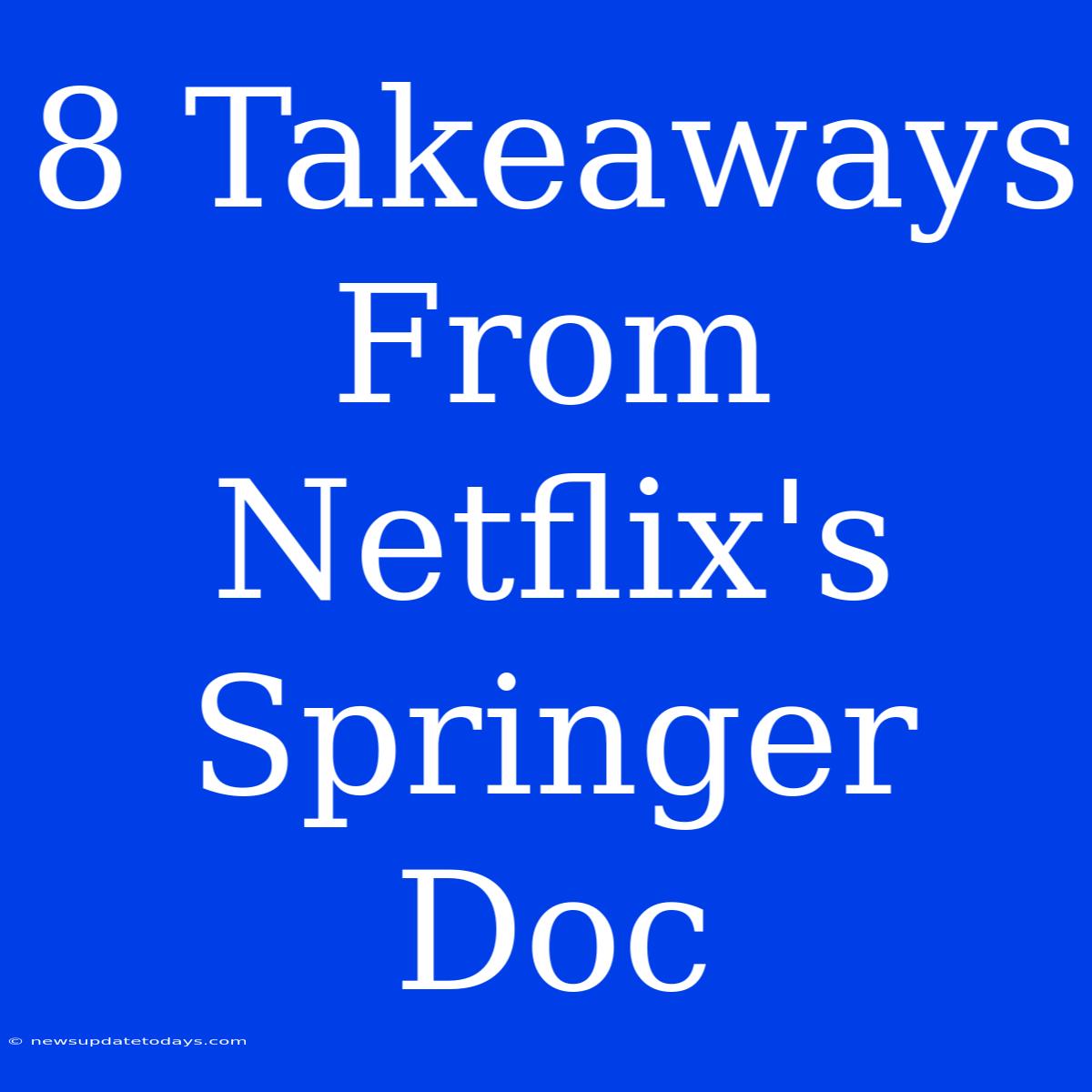8 Takeaways From Netflix's Explosive Springer Doc
Netflix's documentary series on the Jerry Springer Show isn't just a nostalgic trip down memory lane; it's a fascinating exploration of American culture, television's power, and the enduring legacy of a truly unique program. This isn't your typical behind-the-scenes look; it delves deep into the ethical considerations, the manufactured drama, and the surprisingly complex human stories at the heart of the Springer phenomenon. Here are eight key takeaways from this explosive documentary:
1. The Show Was More Than Just Chaos: A Reflection of Society
While known for its chaotic confrontations and shocking revelations, the Springer Show acted as a bizarre mirror reflecting societal anxieties and unresolved issues. The guests, often grappling with infidelity, family disputes, and complex personal struggles, represented a cross-section of American life, albeit a highly dramatic one. The docuseries effectively highlights how the show, intentionally or not, tapped into real societal problems.
2. The "Guests" Were More Than Just Characters: Real People with Real Stories
The documentary humanizes the individuals who appeared on the show. It moves beyond the sensationalized portrayals, offering glimpses into their lives before, during, and after their time on the Springer stage. We see the lasting impact the show had on their lives, both positive and negative, revealing the often-unseen consequences of their participation.
3. The Production Was Carefully Orchestrated: A Well-Oiled Machine
While the show appeared chaotic, the documentary reveals the surprisingly meticulous planning and production involved. The producers played a significant role in shaping the narratives, a fact that sparks ethical debate about the manipulation of vulnerable individuals for entertainment purposes. This raises important questions about the responsibilities of television producers and the ethics of reality television.
4. Jerry Springer's Role: More Than Just a Host
The series sheds light on Springer's own journey, from his political career to his unlikely transformation into a television icon. It explores his role in shaping the show's tone and his relationship with the guests and producers. The documentary challenges the simple perception of him as just a boisterous host.
5. The Impact of Television's Power: Shaping Public Perception
The documentary explores the considerable influence of television on shaping public perception and discourse. The Springer Show, with its controversial content, sparked conversations and debates about social issues, family dynamics, and the boundaries of acceptable television programming. Its lasting influence on television's landscape is undeniable.
6. The Exploitation Debate: A Moral Gray Area
The documentary doesn't shy away from the ethical dilemmas surrounding the show's production. It raises questions about the exploitation of vulnerable individuals and the potential for manipulation. This forces viewers to consider the moral responsibility of entertainment and the potential harm inflicted in the pursuit of ratings.
7. The Enduring Legacy: A Cultural Phenomenon
The Springer Show's lasting cultural impact is undeniable. Its unique brand of chaotic entertainment left an indelible mark on television history. The documentary successfully captures this legacy and examines its continued relevance in today's media landscape.
8. A Reflection on Reality TV: Then and Now
The Springer Show serves as a fascinating case study in the evolution of reality television. By examining its origins and its impact, the documentary prompts viewers to reflect on the genre's development, its ethical considerations, and its ongoing influence on contemporary culture. It asks us to consider what has changed, and what hasn't, in the world of reality TV.
The Netflix documentary on the Jerry Springer Show offers a multifaceted perspective on a cultural icon. It's a compelling watch for anyone interested in television history, reality TV, and the complexities of human nature.

